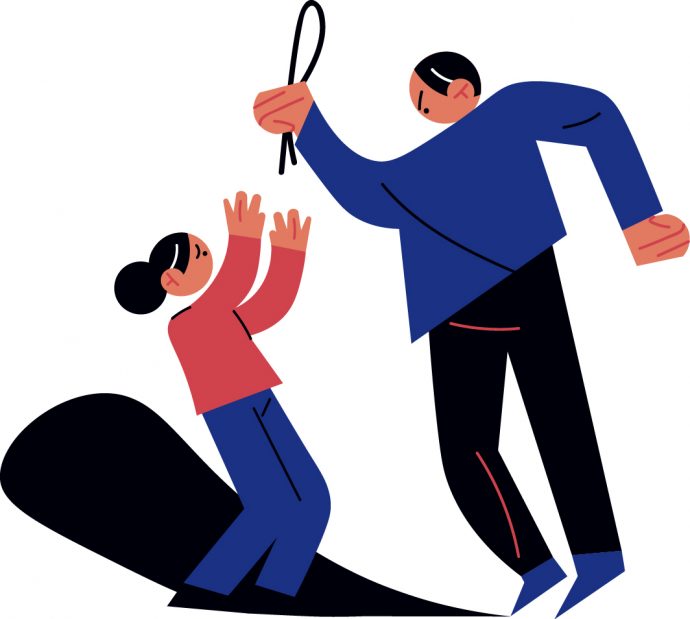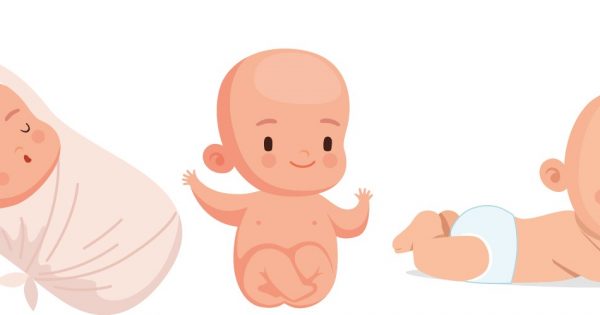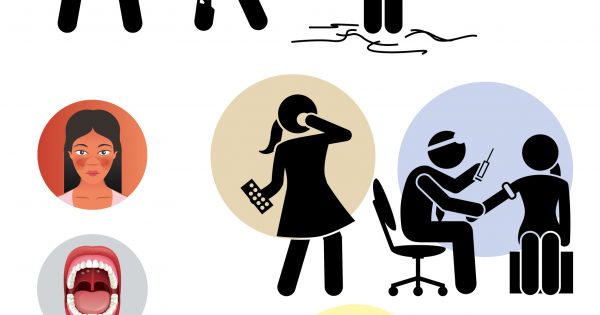Children can suffer serious harm if they are physically abused by family members or those entrusted with the responsibility of looking after them. It is our collective responsibility to recognise the possibility of child abuse and report such instances.
- What is child physical abuse?
- Physical abuse occurs when a parent or any person responsible for the care of a child applies a non-accidental force on a child’s body and hurts the child.
- Example:
- Hitting with bare hands or various objects
- Slapping, pinching, punching, pushing, kicking
- Pulling their hair or shaking the child violently
- Causing burns with hot objects or liquids
- Applying substances like chilli in the mouth or on the lips
- Locking them within a confined space
- Placing them in uncomfortable positions
- Deliberately depriving them of food or water
- What are some circumstances which could increase the risk of child physical abuse?
- An adult who is unable to cope with the care of a child.
- An adult under the influence of alcohol or drugs.
- Young and inexperienced parents.
- Presence of family members with untreated mental health conditions.
- Stress due to overwork, financial difficulties, deprivation of sleep and lack of support.
- Family quarrels that turn violent.
- Drastic change in home or family circumstances.
- Young children and children who are poorly supervised are at a higher risk.
- What happens when children are physically abused?
- The smaller the child, the higher the risk of serious injuries.
- The most common injuries are on the skin, such as bruises, cuts or burns.
- Some children may have broken bones.
- Babies who are shaken violently or suffer blows to their head can develop internal bleeding that results in death or permanent brain damage.
- Blows to the abdomen can rupture internal organs such as the liver or intestines.
- Long-term psychological problems, e.g. anxiety, depression, learning problems, poor self-confidence, aggressive and antisocial behaviour.
- What are the steps that we can take to prevent child physical abuse?
- Make sure your children are properly supervised.
- Know your child’s caregivers. Take your baby for a check-up if he/she has bruises after returning from child care.
- Listen to children if they tell you that someone is hitting them. Don’t wait until they suffer injuries.
- Build a supportive network among family, friends and neighbours.
- Don’t respond in anger. Calm yourself before taking any action to correct a child’s behaviour.
- Get help or counselling if you have problems, e.g. anger issues, substance abuse.
- What should I do if I witness a child being abused?
- Make a report via:
- Talian Nur 15999 by Department of Social Welfare Malaysia
- Hospital (one-stop crisis centre)
- Police (in sexual/physical abuse cases)
- Provide details (e.g. name of the child, location, reason for suspecting abuse).
- Doctors, family members and caregivers are required by law to report the matter if they are aware that a child has been abused.
- Make a report via:
For a deep dive into the topic, tune in to ParentFlix Podcast: Recognising Physical Abuse in Children on Spotify.







Comments